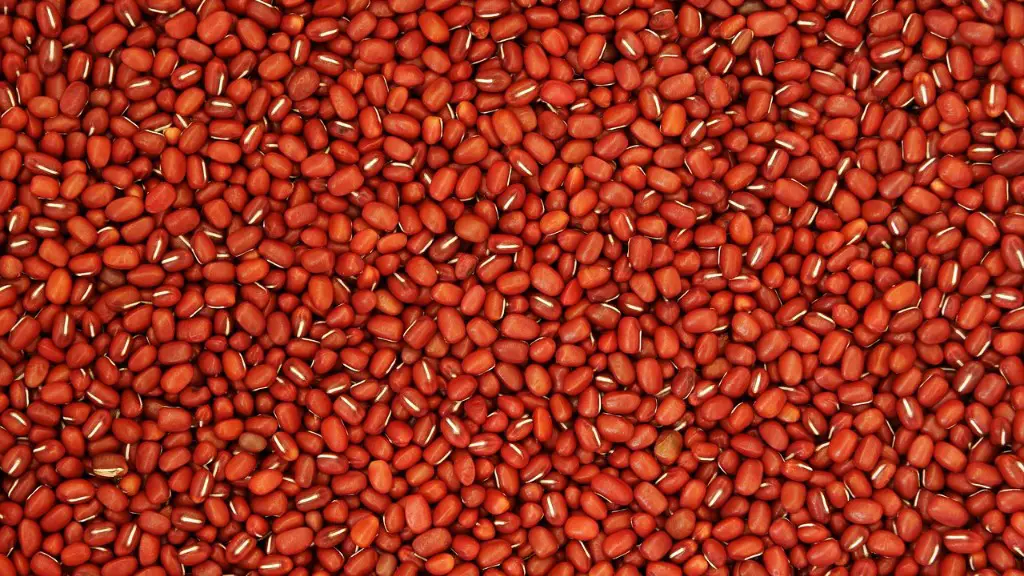Polyploidy is the condition of having more than two complete sets of chromosomes in a cell, and it is a common occurrence in plants. Many commercially important crops are polyploid, including bread wheat, cotton, and apples. Polyploidy offers several advantages to plants, including increased size, early maturity, and enhanced disease resistance. In the field of agriculture, polyploidy is important because it can be used to improve crop yields and create new varieties of plants.
Polyploidy is important to agriculture because it is a way to create new plant varieties. By inducing polyploidy in a plant, breeders can create plants with new and desirable traits. For example, polyploidy is used to create larger, disease-resistant plants.
What is polyploidy and why is it important?
Polyploidy is a key feature of species evolution in the plant, animal, and fungal kingdoms. It is widely considered as an enabling force in evolution, as it allows for the development of new and unique species. Polyploidy is also thought to be an important factor in the development of new and improved traits in existing species.
Polyploidy is a major force in plant evolution and can affect the genetic makeup of an organism as well as its phenotype. This can have consequences for the ecology and geography of a species as well as for its lineage diversification and speciation.
What are the benefits of polyploidy
Heterosis, or hybrid vigor, is the increased fitness of a hybrid offspring compared to its parents. This is because hybrids inherit a variety of alleles from each parent, which can increase the chances that at least one allele will be beneficial in the local environment.
Gene redundancy is another advantage of polyploidy. This occurs when genes are duplicated, which can happen during polyploidization. Having extra copies of genes can be beneficial because it increases the chances that at least one copy will be functional, even if the other copy is mutated.
Asexual reproduction is another advantage of polyploidy. This is because polyploids can produce offspring that are genetically identical to themselves, which means that they don’t have to go through the process of meiosis and fertilization. This can be beneficial because it allows polyploids to produce offspring more quickly and efficiently.
Polyploidy is a very common phenomenon in plant evolution and diversification. It is often seen as a mechanism for adaptation and speciation. Polyploid plants often have higher biomass and are more tolerant to environmental stresses. They can also reproduce more easily than diploid plants.
Is polyploidy good or bad in plants?
Polyploidization is a process that results in a plant having more than two sets of chromosomes. This can occur naturally, through accidents or mutations, or it can be induced artificially. Polyploid plants often have superior properties compared to their diploid counterparts. They are typically larger, with more robust growth and greater disease resistance. Additionally, they are often more tolerant of environmental stresses, such as drought or cold temperatures. Polyploidization is therefore a credible approach for crop improvement.
Polyploidy is a condition in which an organism has more than two sets of chromosomes. This can occur by accident, or it can be induced artificially. Polyploidy is common in plants, but it is relatively rare in animals. Some scientists think that this might have to do with the increased complexity of animal body plans compared to plants. Others suggest that polyploidy may interfere with gamete formation, cell division, or regulation of the genome. However, there are some exceptions in fish, reptiles, and insects.
How has polyploidy contributed towards evolution of agriculture crops?
Polyploidy is the multiplication of chromosomes in a cell or organism. This often leads to the formation of improved varieties, developing sterile lines, restoring fertility in hybrids, enlargement and enhanced vigor, increasing allelic diversity and heterozygosity, etc. All of these effects can lead to an overall improve organism.
Polyploid crops are those that have more than two sets of chromosomes. They make up a significant portion of the major food and fiber crops of the world and include wheat, potato, cotton, apple, peanut, citrus, and brassica oilseeds such as rape, canola, and Camelina. Polyploidy is often used in plant breeding to create new varieties with desired traits, such as larger or more flavorful fruits.
How can polyploidy in plants benefit humans
Polyploidy is a process where a plant has more than two sets of chromosomes. This can be beneficial to humans because the plant is usually stronger and better. Additionally, polyploidy can be used as a steroid to help with plant growth.
These results indicate that the hybrids and polyploids have increased photosynthetic ability, which allows them to grow larger than their parents. This is an important finding, as it shows that these plants have the potential to be used in agriculture and forestry to improve yields.
What is the role of polyploidy in crop improvement biology discussion?
Induced polyploidy is a process where plants are artificially made to be polyploids, meaning they have extra sets of chromosomes. This has important practical applications because by doing this, it is possible to produce disease resistant plants that have desirable qualities. For example, polyploids are often larger in size and produce large seeds and fruits. This makes them more desirable to farmers and growers who are looking to increase their yield. Additionally, polyploids are often more resistant to environmental stresses, such as drought, making them more hardy and less likely to die in adverse conditions.
There are several ways to manipulate ploidy, including endosperm culture, chromosomal duplication, interploid hybridization, sexual polyploidization, and the creation of haploids. Ploidy modification may be a practical approach to improve the fruit quality attributes with these cutting-edge methods.
Why polyploidy is more common in plants
Polyploidy arises when chromosomes don’t separate properly during cell division, resulting in a cell with extra chromosomes. This is common in plants, and is a major source of speciation in angiosperms (flowering plants). Allopolyploidy, which involves doubling of chromosomes in a hybrid plant, is particularly important.
Polyploidy is a condition where an organism has more than two complete sets of chromosomes. Polyploidy can occur naturally, and it is sometimes nurtured by humans. There are several mechanisms that can lead to the formation of polyploid plants, including meiotic or mitotic failures, and fusion of unreduced (2n) gametes. Both autopolyploids (plants with multiple sets of chromosomes from the same species) and allopolyploids (plants with multiple sets of chromosomes from different species) can be found in nature. Allopolyploid plants are often more successful than autopolyploid plants because they have a greater genetic diversity and are better able to adapt to their environment.
Why do plants survive polyploidy?
Polyploid plants are those that have more than two sets of chromosomes. They are often more adaptable to extreme environments than their diploid (two sets of chromosomes) parents. This means that they are more likely to survive in disasters and climate events. As a result, they often replace the ecological niches of their diploid progenitors.
Plants show polyploidy more commonly than animals because degenerate sex chromosomes are rare among plants. Animals may rarely show polyploidy because degenerate sex chromosomes are common. This is because dioecy is rare among plants, and extreme Y degeneracy is rare among dioecious plants.
What is the value of polyploidy in plant domestication
Polyploidy is the condition of having more than two sets of chromosomes in a cell. It is found in some plant and animal species, and can occur naturally or be induced by humans. Polyploidy can offer some advantages for domestication or crop evolution, as it can lead to more edible parts, changes to selfing systems, and adaptation to new environments.
Polyploidization is a process where an organism gains additional sets of chromosomes. This can alter the gene expression patterns in the organism, as well as the way that the organism interacts with other organisms. Although both plants and animals would be sensitive to such changes, the differences in development and growth between animals and plants may lead to different evolutionary outcomes.
Warp Up
Polyploidy refers to a cells with more than two sets of chromosomes. This occurs when a cell working in meiosis doesn’t properly divide the chromosomes. Polyploidy is important to the field of agriculture because it can help produce plants that are more tolerant to stress, pests, and diseases. It can also result in plants with larger, more uniformly shaped fruits and flowers.
Polyploidy, or the multiplication of chromosomes, is important to agriculture for several reasons. By increasing the number of chromosomes, polyploidy creates plants that are more disease and pest resistant, as well as more tolerant of environmental stresses such as drought. In addition, polyploidy creates new plant varieties with novel characteristics that can be exploited by breeders. Finally, polyploidy is a naturally occurring phenomenon in many plant species, and thus has potential applications in the conservation and restoration of threatened plant populations.





